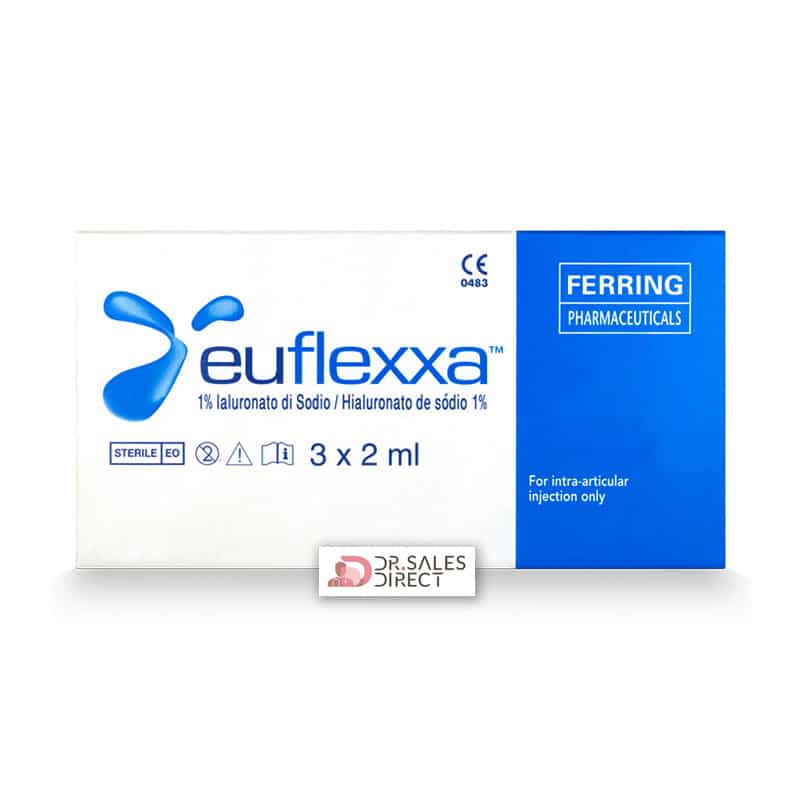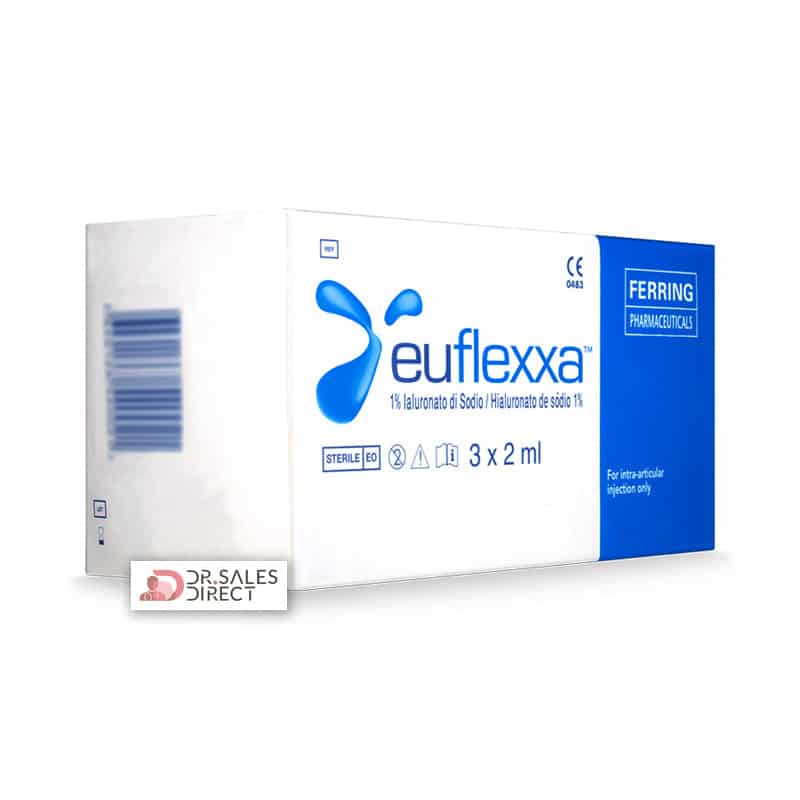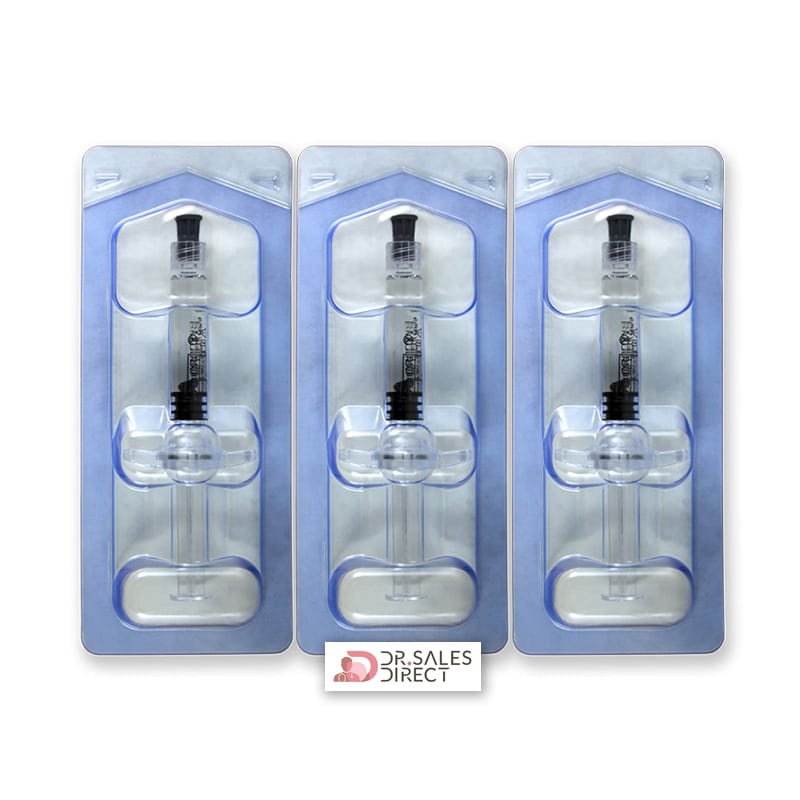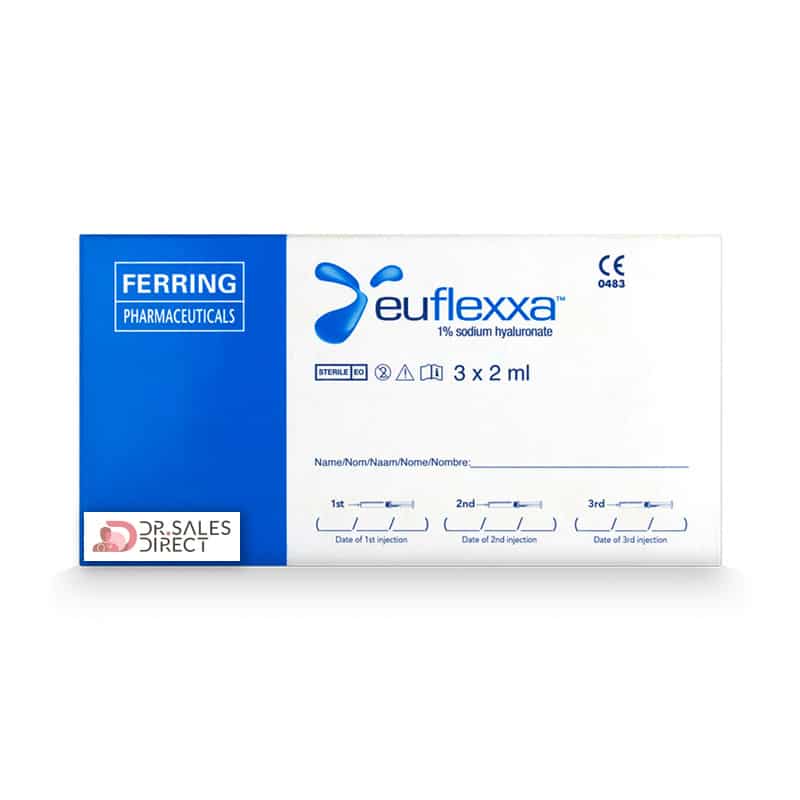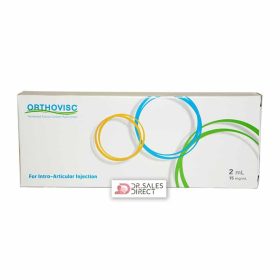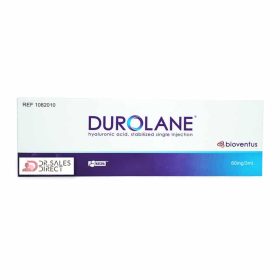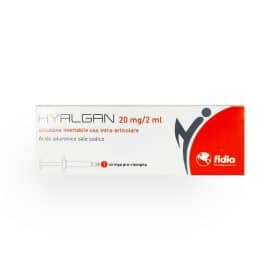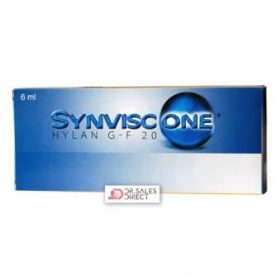EUFLEXXA® (Italian)
$199.00
EUFLEXXA is a hyaluronic acid injection used to treat knee osteoarthritis in adults. It acts as a viscosupplement, restoring lubrication to the knee joint to reduce pain and improve mobility. EUFLEXXA is administered via injection by a healthcare professional and is typically used for patients who have not responded adequately to other treatments.
Brand Name: EUFLEXXA®
Manufacturer: Ferring Pharmaceuticals
Active Substance: SODIUM HYALURONATE
Strength: 10mg/ml
Package size: 3 x 2ml Pre-Filled Syringes
Additional information
Euflexxa injection is an intra-articular implant made of sodium hyaluronate and is suitable for easing knee pain caused by osteoarthritis. This sterile, viscous, elastic, bioresorbable gel is a product of an American company, Ferring Pharmaceuticals.
The active constituents of this gel are 10mg/mL of sodium hyaluronate, 8.5mg/mL of sodium chloride, 0.56mg/mL of disodium hydrogen phosphate dodecahydrate, 0.05mg/mL of sodium dihydrogen phosphate dehydrate and water for injection.
A sterilised package of this implant comes in 3-2mL preloaded syringes and a patient information leaflet. Store this fragile package in a clean and cool room (2°C to 8°C), away from light. It has a shelf life of 3 years and can be stored at room temperature (15°C to 25°C) for up to half a year.
Euflexxa injections main benefits:
- Pain relief and improved mobility
- Bioengineered to mimic natural synovial fluid
- Safe and well-tolerated
Purchase Information
Euflexxa is available for purchase in pre-filled syringes designed for single-use injections. This product is intended for professional use and can be purchased from reputable medical suppliers. For wholesale pricing and bulk order discounts, Euflexxa injections can be obtained through Dr Sales Direct, ensuring authenticity and quality. Wholesale buyers can benefit from competitive pricing and reliable supply, making it a cost-effective option for clinics and healthcare providers.
Frequently Asked Questions
Euflexxa works by supplementing the knee joint’s natural synovial fluid with a highly purified form of hyaluronic acid. This added hyaluronic acid helps to lubricate and cushion the joint, reducing friction and pain, and improving overall joint function in patients with osteoarthritis.
Yes, Euflexxa is made of a highly purified form of hyaluronic acid, which is a natural substance found in the synovial fluid of healthy joints. This hyaluronic acid is bioengineered to mimic the natural fluid, providing similar benefits in terms of lubrication and shock absorption.
Yes, Euflexxa is specifically designed to help relieve the symptoms of knee osteoarthritis. By enhancing the lubrication and cushioning in the knee joint, it reduces pain, increases mobility, and improves joint function, making it easier for patients to perform daily activities.
The effects of Euflexxa injections typically last up to six months. However, the duration of relief can vary depending on individual factors such as the severity of the osteoarthritis, the patient’s activity level, and how well they respond to the treatment.
Euflexxa injections have a high success rate, with many patients experiencing significant pain relief and improved joint function. Clinical studies and patient reports indicate that a substantial proportion of patients experience noticeable improvements, although individual results can vary based on a range of factors.
Yes, Euflexxa is a gel injection that contains hyaluronic acid. This gel-like substance is injected directly into the knee joint, where it supplements the natural synovial fluid, providing improved lubrication and cushioning to help alleviate the symptoms of osteoarthritis.
The choice between Euflexxa and Synvisc depends on individual needs and preferences. Euflexxa, made of highly purified hyaluronic acid, is generally well-tolerated and administered in three weekly injections. Synvisc, containing hylan G-F 20, offers superior cushioning with higher viscosity and is available as either three weekly injections or a single injection (Synvisc-One). Synvisc may provide better shock absorption but has a higher risk of inflammatory reactions. Consulting with a healthcare provider can help determine the best option based on patient response and convenience.

